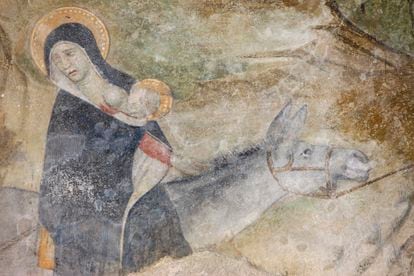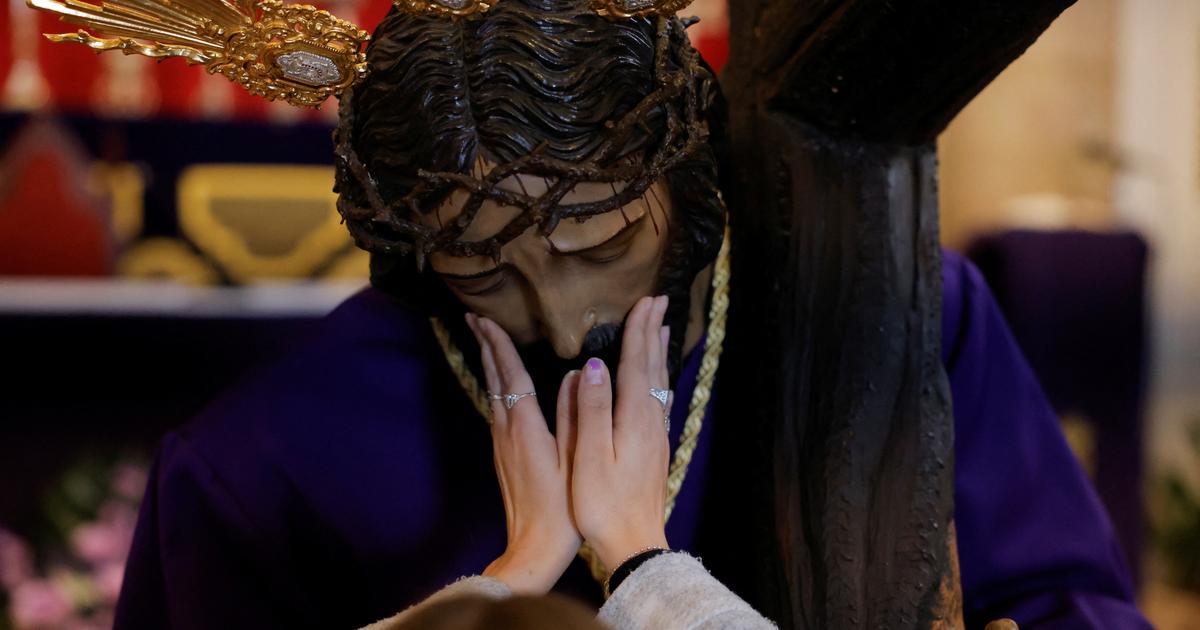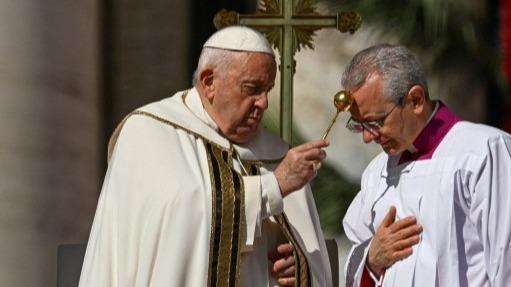It is possible that everything we have been taught about the childhood of Jesus and Christmas is more myth than history, and that the Jewish prophet was not born in Bethlehem and surely not on the night of December 24 to 25, since half of the Gospels ignore all aspects of his birth and focus above all on his public life and his death on the cross.
Assuming, however, that it was history, there is one aspect that Christians tend to silence: Jesus and his parents became refugees who had to flee to Egypt because King Herod wanted to kill the newborn child.
Also today many of those who have to leave their land do so fleeing wars or tyrants.
More information
In the end, where and when was Jesus born?
Christmas, about which we know very little, but which ended up being a special date for the Christian world, thus also becomes a knock for today's conscience in the face of the drama of emigration that judges us all. If much of what has been written about Jesus and, above all, about his birth surely belongs to the world of legend, which has been transmitted by Christians throughout history, today's emigrants are not another myth. They are a painful and cruel reality that that rebellious Jew, defender of all those persecuted and humiliated, would place before the conscience of Christians.
Christianity, which was born as an attempt to broaden, through the life of Jesus, the idea of a God for the chosen people of Israel and give it a universal dimension in which there are no longer faithful and unfaithful, but only children of God. It will only have value if the Church remains faithful to universal love and compassion, especially towards the most humiliated and persecuted, such as migrants.
Although what is related to the birth and childhood of Jesus only exists in the apocryphal Gospels, not in the four official ones, the truth is that this legend has become one of the dates that Christians celebrate with the greatest joy. It is very possible that the entire story of the birth in Bethlehem was created throughout the early years of Christianity because the faithful of the new sect felt the need to know one of the most unknown aspects of the life of Jesus, such as the date of the birth of which no Gospel speaks. The early Christians felt that there was a day to go before celebrating it. And so the Church chose the Roman holiday of the pagan god Mithras.
None of the four evangelists actually speak of Jesus of Bethlehem, but of Jesus of Nazareth.
The Jews were surnamed with the place of birth or with the name of the father, in such a way that Jesus should have been called Jesus of Bethlehem or Jesus of Joseph, never Jesus of Nazareth.
The most certain thing is that the legend of the birth in Bethlehem was due to the fact that the Bible spoke of the future messiah with royal blood, of the line of David, who would have been born in Bethlehem, a city about which the prophet Micah said: “Of You will be the one who will reign in Israel ”.
In this context, giving birth to Jesus in a village like Nazareth - so insignificant that it does not even appear on the maps of his time - would diminish his dignity.
He needed to come into the world in a city with history like Bethlehem.
'The Flight into Egypt' (1280) by Guido of Siena.
Heritage Images (Heritage Images / Getty Images)
From there the bizarre birth of Jesus in a manger, with the Magi, whose names, Melchor, Gaspar and Baltasar, appear again only in the apocryphal Gospels was enriched with the smallest details.
And, above all, his flight to Egypt fleeing from the tyrant King Herod, who feared that the king of Israel had been born who would endanger his kingdom and gave the order to kill all the newborn children.
Pope Benedict XVI —the German Joseph Ratzinger, a great ultra-conservative theologian—, before resigning from the pontificate that Pope Francis inherited, had a moment of progressive temptation and wrote that probably in the manger where Jesus was born “there was neither mule nor ox". I wrote then that the most certain thing is that there would not have been a manger and that Jesus would not have been born in Bethlehem.
The funny thing is that modern archeology is trying to trace the possible itinerary of the holy family in their flight to Egypt to turn it into a place of tourism and pilgrimage for Christians. Taking advantage of some of these archaeological discoveries, there are already places through which the newborn Jesus would have passed, such as the footprints of his feet on the rock of Sakca or the drops of milk from Mary that fell when breastfeeding her child where women still today Sterile people come to ask for the miracle of being able to conceive.
Currently, there is a tendency to highlight the aspect of the flight to Egypt, where the holy family would have remained as some more emigrants until Herod's death.
And it is that at that time Egypt was an obligatory step for all the wise men of the ancient world such as Pythagoras or Thales of Miletus.
Even the Greek gods took refuge in Egypt, the country where the legend of Moses was also born, fleeing with his people from the slavery to which they were subjected to lead them to the promised land.
Christianity easily penetrated this country because Osiris was the god who dies and rises again, where the reward for a life faithful to religion was paradise.
And today it is thought that the Christian dogma of the Triune God, monotheism, was forged in Egypt and from there it passed to the Christians.
Medieval fresco showing the flight into Egypt.Fred de Noyelle / GODONG (Universal Images Group via Getty)
Bible study
Theologians specializing in the study of the Bible try to understand how it is possible that Jesus, born without a doubt in the village of Nazareth, the son of a bricklayer and an illiterate woman as were most of the women of his time who were He prohibited studying, he could appear in public at the age of 30 demonstrating wisdom and argue with the doctors of the law or speak Greek without having studied.
Hence the attempt to explain that surely during those 30 years of silence he traveled through the places where Gnostic philosophy and theories flourished, of which many traces remain in the prophet's speeches.
And this explains that precisely today one of the most interesting aspects in the reconstruction of the life of the Jewish prophet who gave life to one of the three great monotheistic religions is that of his possible flight to Egypt, where he would have spent all his childhood and studied other languages and philosophies that remain traces in his speeches and parables.
The truth is that in the real or mythical story of the birth of Jesus, the most current and that corresponds to the essence of the primitive doctrine of Christianity is the flight of Jesus to Egypt, which makes him the first refugee of Christianity, whose Parents had to live the anxiety that each family suffers that has to leave in a hurry and run their home and their country to flee from the horror of dictators and death.
Therefore, if the purest Christianity proclaims that each person has the dignity of being a child of God and of embodying the essence of his message, which is the reception of what the world despises or tries to eliminate, there is no doubt that closing The eyes before the drama of the migrants, which sometimes leads to the persecution of the refugees, constitutes one of the greatest betrayals of the essence of primitive Christianity.




/cloudfront-eu-central-1.images.arcpublishing.com/prisa/U2R7NZPI4CFAXSB3RA5IFUE2VE.jpg)









